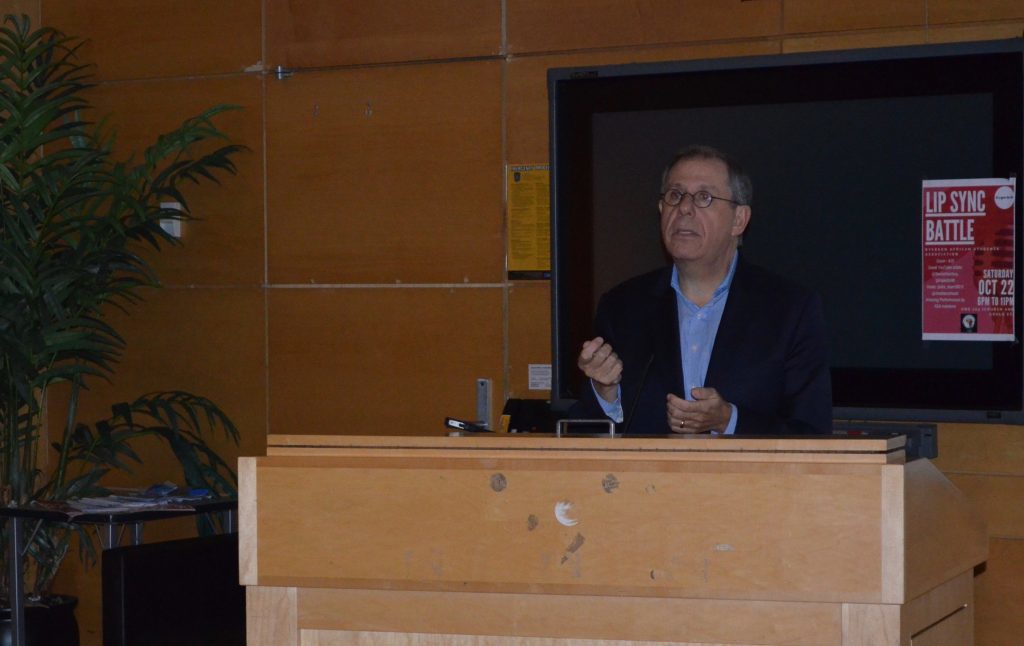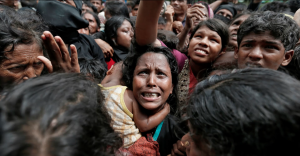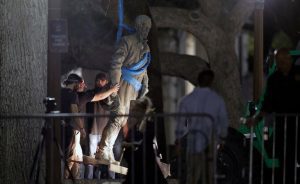War journalists around the world are not having their mental health taken seriously by their employers, Dr. Anthony Feinstein, a University of Toronto professor of psychiatry, said at a discussion at Ryerson University Wednesday.
Feinstein, also a successful author and documentary filmmaker, has spent over a decade studying and surveying war journalists and has found that their constant contact with conflict makes them more likely than their peers to be affected by Post-Traumatic Stress Disorder (PTSD) and depression. “Braveness doesn’t give you immunity to nasty things,” Feinstein said.
According to his research, Feinstein defines PTSD as “a collection of symptoms that might arise in response to an overwhelming stress,” such as the stress of being in a war zone, witnessing death, or being injured. Symptoms include persistent flashbacks, paranoia and difficulty sleeping, among others, he said.

Jake Hanrahan, a reporter and producer for Vice News on HBO who has covered conflict in Turkey, Iraq and the Ukraine, said in a phone interview from the U.K. that the constant violence does begin to affect you. “I got back from the Ukraine and for the first couple nights, you have dreams that you’re being shelled,” he said.
Historically however, news organizations have left war journalists without much assistance, Feinstein said.
But according to Feinstein, the corporate culture is shifting and the mental health of journalists is now being acknowledged. “Are all news organizations doing that? Absolutely not,” Feinstein said, “But I think the big ones are starting to do it now.”
The practice does seem to be becoming more prominent in the industry. Hanrahan, his cameraman Philip Pendlebury and their Turkish colleague Mohammed Rasool were imprisoned in Turkey on account of alleged terror offences. Hanrahan and Pendlebury were imprisoned for 11 days while Rasool was held for 131 days, respectively. Hanrahan feels that when he needed it, the institution stepped up to support him, and he was even surprised by the amount of support offered. “Vice did absolutely everything, even forcing us to go to counselling,” Hanrahan said.
The warnings won’t stop some aspiring war journalists from getting into the field though, like first year journalism student Ethan Craft, who said the potential to “live dangerously” is all part of the appeal. He realizes the impact the job could have, however. “Worst case scenario, you don’t come home,” Craft said.
But Craft does hope news organizations begin incorporating some sort of training to better prepare their war journalists for life in a conflict zone. “You’re doing some of the same things as soldiers in some of the same environments as soldiers,” Craft said.
Hanrahan trusts that most war journalists know what they’re getting into, though. “I chose to come here,” he said, “and none of us go to war thinking it’s going to be fine or calm.” He does wish more time was given for readjustment upon their return home, instead of just getting right back at it. “The news doesn’t stop,” Hanrahan said, but a week off would make the transition easier.
Hanrahan still considers himself and all other war journalists lucky, despite the dangers of the job. “We’re not soldiers, you know. We get to go home,” he said.


JRN 103


